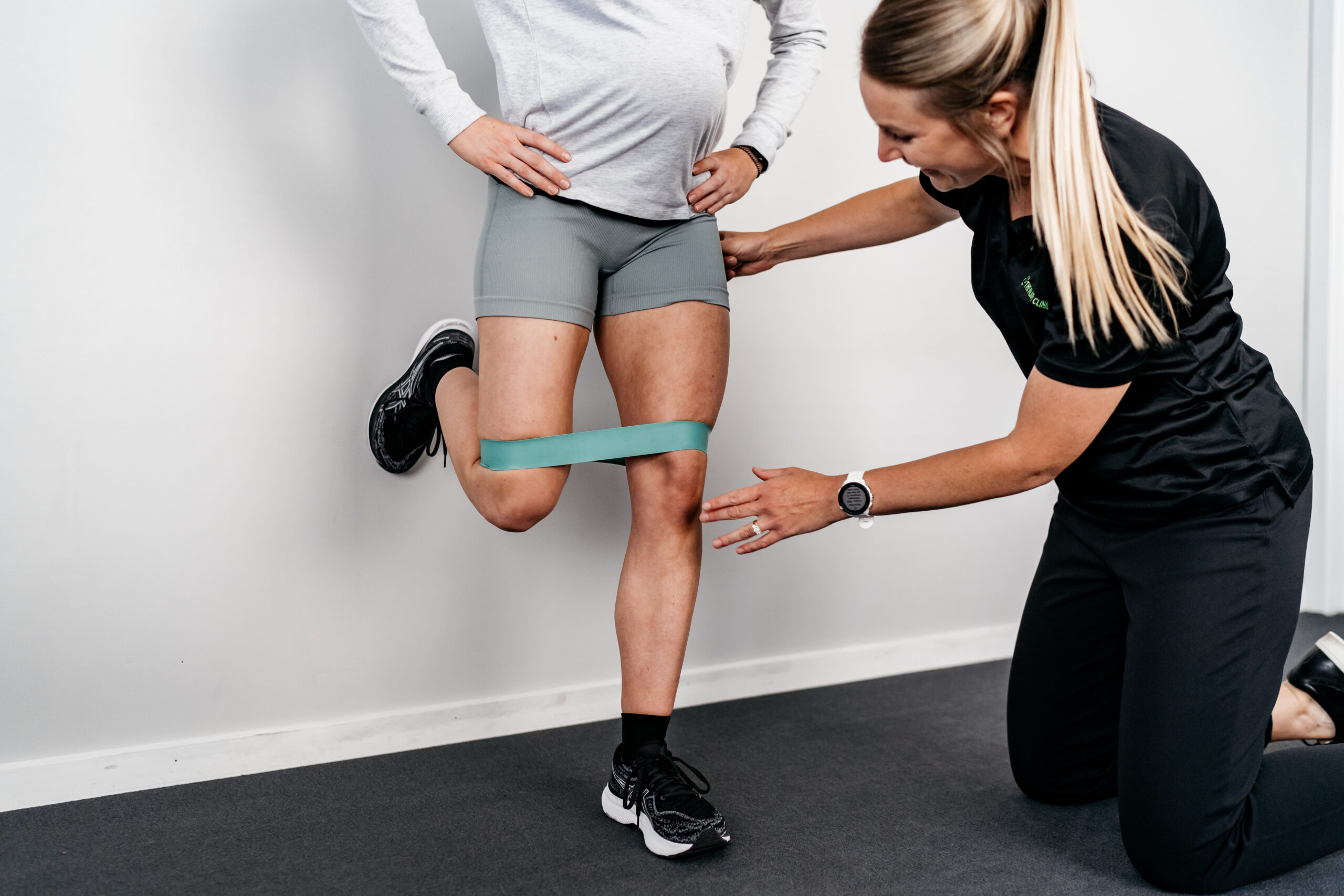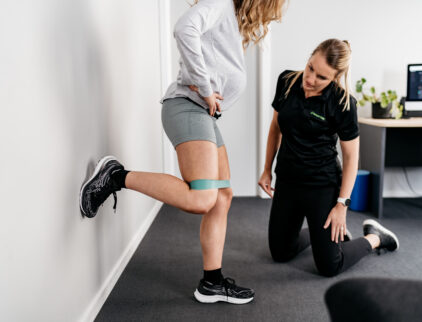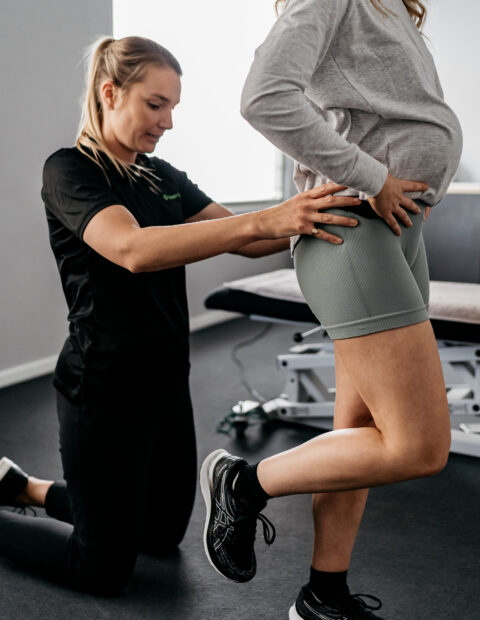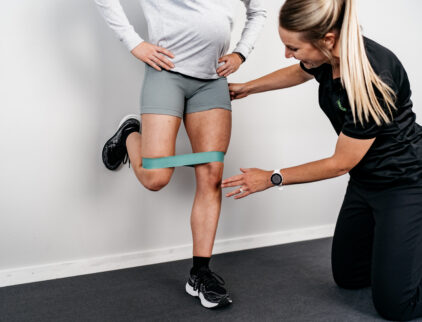
While it has been established that in most cases it is safe to exercise during pregnancy, fewer than 15% of pregnant women achieve the minimum recommendation of exercise (150mins per week of moderate intensity). It seems women either find activity difficult to achieve, are unsure what to do, or are unsure if it is safe.
Unfortunately, it is difficult to implement a ‘one size fits all’ approach to exercise during and after pregnancy. This means general guidelines can be outlined, however, it is always best to consult with your Obstetrician, Midwife or Physiotherapist to find out what is right for you.



BENEFITS OF EXERCISE DURING PREGNANCY
- Habitual prenatal exercise decreases the risks of complications during labour.
- Prenatal exercise reduces the odds of excessive gestational weight, which may reduce the risk of instrumental delivery.
- Prenatal exercise can reduce the severity of pain during pregnancy and post-partum.
- It is suggested that exercise during pregnancy reduces the degree of biomechanical change occurring as pregnancy advances;
- Decreasing loads on the spine
- Increasing joint stabilization
- Contributes to better segmental control and motion
- May help reverse trunk muscle imbalance
- May initiate a pain desensitization process leading to increased pain detection threshold



WHAT DO I NEED TO BE WARY OF?
While there are many benefits of exercising during pregnancy, there are certain times, conditions, signs and symptoms where exercise should be avoided or ceased. The most common contraindications are listed in the table below.
| ABSOLUTE CONTRAINDICATIONS | RELATIVE CONTRAINDICATIONS |
|
|
Discussions around exercise should always be conducted with your primary carer. If you have any concerns or your symptoms change, stop exercising and ensure you seek the opinion of a professional before you continue exercising.
Signs when to stop exercising include (but are not limited to):
-Vaginal bleeding
-Nausea or vomiting
-Feeling faint or light-headed
-Strong pain, especially from your pelvis or back
-Reduced movement of your baby
-Abdominal pain
-Amniotic fluid leakage
-Calf pain or swelling
-Chest pain/tightness or palpitations
-Shortness of breath
-Excessive fatigue
-Uterine contractions (premature and/or painful)
Please note, this information should be used as a guide only. If you have any questions or queries, discuss them with your Obstetrician, Midwife or Physiotherapist.
Schedule your next visit
If you’re interested in booking an appointment with one of our team members, contact our clinic today and we’ll be happy to find time for a consultation.
Schedule Consult